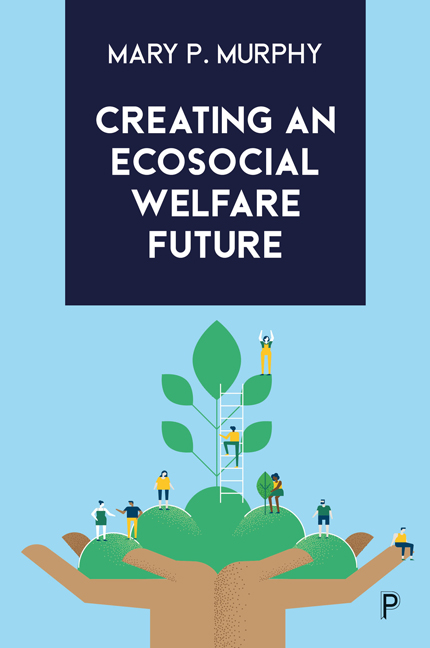Book contents
- Frontmatter
- Dedication
- Contents
- List of figures and tables
- Acknowledgements
- Introduction: The case for a welfare imagination
- PART I From problems to solutions: a post-growth ecosocial political economy
- PART II Building an ecosocial imaginary
- PART III An ecosocial political imaginary
- Conclusion: The case for systemic transformation
- Appendix: Ireland
- Notes
- References
- Index
5 - Universal Basic Services
Published online by Cambridge University Press: 20 January 2024
- Frontmatter
- Dedication
- Contents
- List of figures and tables
- Acknowledgements
- Introduction: The case for a welfare imagination
- PART I From problems to solutions: a post-growth ecosocial political economy
- PART II Building an ecosocial imaginary
- PART III An ecosocial political imaginary
- Conclusion: The case for systemic transformation
- Appendix: Ireland
- Notes
- References
- Index
Summary
Building on Chapters 3 and 4, this chapter examines how to best meet people's basic non-substitutable needs, and to do so in ways that enable ecological and societal wellbeing. Some needs, clothing, for example, can likely appropriately be met within the scope of the market, but many needs are best provided through state, social or collective mechanisms. Reducing collective consumption offers the best potential to reduce emissions and safeguard natural resources, while also being key to more equal outcomes (Gough, 2017). The chapter draws heavily on the concept of Universal Basic Services (UBS) (Coote and Percy, 2020; Coote, 2022) which are key to reducing reliance on the market to satisfy essential needs and are a central building block of a more decommodified ecosocial state. The first section of the chapter argues for the importance of collective needs and against market provision, it makes the case for reciprocity, and state, society and economic democracy, all of which can be promoted through UBS. The second section of the chapter further clarifies the concept of UBS, unpacks the functions of the state and uses care services to ground the discussion of UBS. The Irish case study offers a blueprint for UBS and universal care in Ireland.
Arguments for UBS
Satisfying collective needs
An ecosocial welfare state has two broad, mutually reinforcing objectives: ecological sustainability and reducing all forms of societal inequalities (Coote, 2022). Previous chapters outlined how the post-war welfare settlement embodied and enhanced social solidarity by pooling resources, sharing risks and collectively providing essential services according to need and not ability to pay. This was underpinned by a deep value: the principle of reciprocity that underpinned rights and obligations (Hiilamo, 2022). Previous chapters discussed how neoliberalism undermined this value and was associated with an attack on comprehensive welfare, leading to poverty and insecurity, inequalities and related breakdown of trust in democratic institutions. Chapter 2 established the relationship between neoliberal capitalism and ecological catastrophe (Coote and Percy, 2020).
Tackling all of this requires a restoration of the principle of reciprocity and a recognition of mutual interdependence. This can be positively practiced in the concept of the commons or collective provisioning.
- Type
- Chapter
- Information
- Creating an Ecosocial Welfare Future , pp. 77 - 92Publisher: Bristol University PressPrint publication year: 2023



